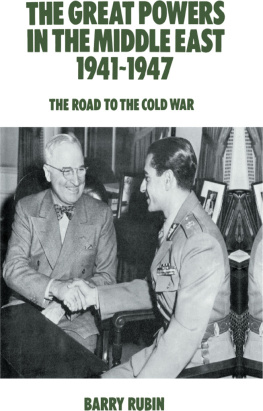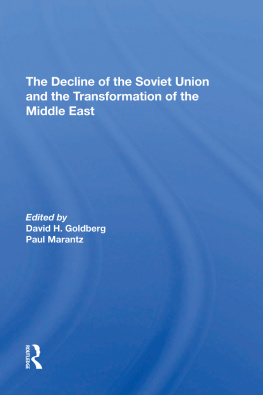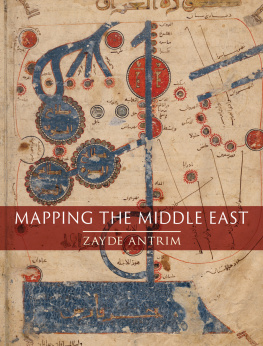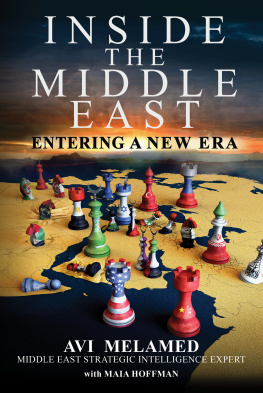Routledge Revivals
The Elusive Peace
The Elusive Peace, first published in 1979, highlights the crucial developments in the Middle East during the twentieth century: the coming of nationalism, the struggle for independence, the effects of the Cold War and the four hot wars in the Middle East. The numerous attempts to solve the conflicts, and the ultimate failure of such attempts, are discussed with particular reference to the war in Lebanon, and its relation to larger conflicts. As an American emissary during the Kennedy, Johnston and Nixon years, William Polk is unique in his ability to assess the key personalities and provide thorough analysis, considering Sadat and Begin, and the American policies of Dulles and Kissinger. This is a fascinating and inclusive study which provides essential background to the on-going turmoil in the Middle East.
The Elusive Peace
The Middle East in the Twentieth Century
William R. Polk
First published in 1979
by Croom Helm Ltd
This edition first published in 2013 by Routledge
2 Park Square, Milton Park, Abingdon, Oxon, OX14 4RN
Simultaneously published in the USA and Canada
by Routledge
711 Third Avenue, New York, NY 10017
Routledge is an imprint of the Taylor & Francis Group, an informa business
1979 William R. Polk
All rights reserved. No part of this book may be reprinted or reproduced or utilised in any form or by any electronic, mechanical, or other means, now known or hereafter invented, including photocopying and recording, or in any information storage or retrieval system, without permission in writing from the publishers.
Publishers Note
The publisher has gone to great lengths to ensure the quality of this reprint but points out that some imperfections in the original copies may be apparent.
Disclaimer
The publisher has made every effort to trace copyright holders and welcomes correspondence from those they have been unable to contact.
A Library of Congress record exists under LC control number: 79016393
ISBN 13: 978-0-415-83100-0 (hbk)
ISBN 13: 978-0-203-79549-1 (ebk)
The Elusive Peace: The Middle East in the Twentieth Century
WILLIAM R. POLK
1979 William R. Polk
Croom Helm Ltd, 2-10 St Johns Road, London SW11
British Library Cataloguing in Publication Data
Polk, William Roe
The elusive peace.
1. Near East Politics and government
I. Title
956 DS62.8
ISBN 0-7099-0146-1
Printed in Great Britain by
Biddles Ltd, Guildford, Surrey
For Eliza
deaf to the sounds of hate
reading the signs of understanding
In school most of us were taught to view history as a sort of nomadic experience: the eye roves from one area to another as the pages unfold. First there were the ancient Egyptians and the Mesopotamians, then came the Phoenicians who were replaced by the Greeks who were defeated by the Romans who in turn fell before the Huns and so on. School texts rarely encourage the student to consider what happened to the Egyptians while the Greeks were becoming. They were no longer relevant. Like school texts, the contemporary media focuses our attention on fleeting incidents and fosters our mental migrations. Crises, wars and, rarely, peace negotiations seize our attention and hold it briefly, but it is soon diverted to another area where something more arresting or novel is happening.
Like ancient peoples, current issues rarely disappear. Often they remain just as relevant to those involved and return to seize our attention when they again appear newsworthy or again novel. But even when the issues fade or even be resolved and when the stirring events are forgotten, they form patterns which, unseen, stratify the political geology, shaping the contours of the future.
Working from this visible and contemporary ground downward, so to speak, both the historian and the statesman must constantly re-explore the unseen and older strata of memory since what appears today merely of antiquarian interest may tomorrow acquire the most painful relevance. Like the oil hidden under its sands, the Middle East yields contemporary refinements of history which are the very stuff of its politics. Throughout this story, we shall see example after example.
It is primarily as an historian that I have written this book, but I have also observed and participated in many of the events with which it deals over the last thirty years. I have known a number of the major participants and have been allowed access to the confidential thoughts of several of the governments. More important, I have had the opportunity to talk with, live among and read the literature of the various peoples. These experiences contain their own rewards; they were not means to any end, certainly not to this book. But based upon them, I have been able to make accurate predictions and projections on Middle Eastern events the war of 1967, the war of 1973, the failure of several peace initiatives and more importantly to devise ways to work toward peace. Time after time, I have watched an opportunity lost, often through misperceptions of the issues and problems, and I seek here to set out what I think are the essential facts and interpretations to help us seize the peace.
A few words about the structure of the book may help the reader. I begin with the deeper, more distant memories of the Arabs and the Jews, trying to show what I have called the political geology of contemporary events. These, even when not exactly remembered, contribute to what I understand Jung to have thought of as the collective unconscious. Put another way, they have helped to make Egyptians, for example, distinctive. Insiders do not need to know them for they acquire the feel of them as they mature; outsiders, lacking the intimate life-long experience, must seek artificially to know them to understand the culture.
Beginning with The Coming of Nationalism, the memories become more immediate and more imperative. Every child is taught these events and consequently they form the language, set the style, and give the syllabus of contemporary events. As becomes apparent in the chapter on Begin and Sadat, however much these two gifted and dedicated men may wish otherwise, they see the world and act within this schooling. I have dealt with these issues essentially chronologically but within the sequence I have sought to single out several main themes. The two most important are the struggle for independence with a clear admission that in our times nationalism is still the strongest and most popular single political idea in the Middle East as it is in Africa and Asia and the growth of capacity. Capacity is a concept often neglected in political discussion. Economists deal with it more routinely. They often quantify it in terms of Gross National Product (GNP) or, to refine it in human terms, GNP per capita. So we can compare Israel and Egypt, for example, as countries with GNPs of roughly $12 thousand million versus roughly $14 thousand million. Or when divided by the populations of each roughly $3,370 versus $350










